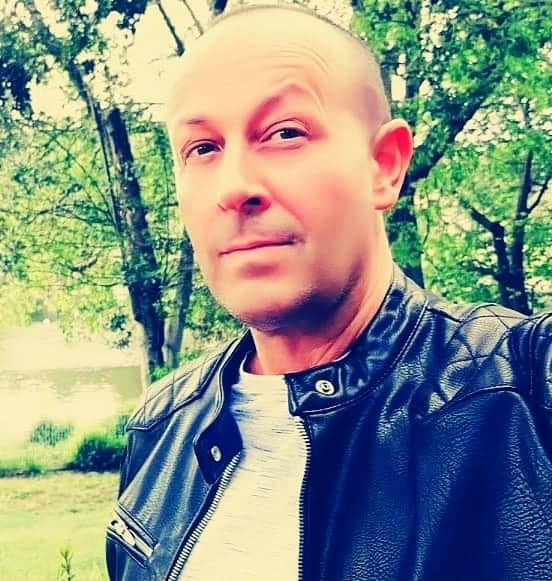
“When someone seeks,” said Siddhartha, “then it easily happens that his eyes see only the thing that he seeks, and he is able to find nothing, to take in nothing because he always thinks only about the thing he is seeking, because he has one goal, because he is obsessed with his goal. Seeking means: having a goal. But finding means: being free, being open, having no goal.”
― Herman Hesse
Happiness is arguably the ultimate underlying theme of everything a person desires, but often the path to fulfillment is not so linear. And now, it seems, research has found that pursuing happiness may actually make someone less happy. This finding is part of the paradox unveiled in a new study about the desire for happiness and its effects on a person’s perception of time.
Researchers at Rutgers University and the University of Toronto explored the concept of happiness and a person’s view of it, to somewhat surprising results. During the studies, one group of subjects were instructed either to list things they believe would make them happier, or asked to attempt to make themselves happy while watching a dull movie about building bridges. The idea behind this setup is that it frames happiness as goal one aspires to achieve, rather than a static state of being. The participants in the second group grew to view happiness as a something they already accomplished by watching a slapstick comedy film (one more upbeat than the bridge program) or listing items that explain why they are already happy — in other words, not looking at happiness as a goal, like the first group did, but just a state they were already in.
After the tests were complete, all subjects were asked to report how much free time they felt they had.
In effect, when subjects viewed happiness as a goal they sought to achieve, they displayed more anxiety about having limited time to achieve said goal. Conversely, when subjects did not view happiness as such a cut-and-dry thing they might not achieve — but rather as something they could already account for, as the slapstick comedy group did — they exhibited less anxiety about the passage of time.
The findings demonstrated that someone’s perception of time scarcity may be related to their pursuit of happiness — an ultimate goal that is often unattainable. Participants who said they had attained their goal of being happy to some degree demonstrated lessened anxiety about restricted time.
Based on these findings, researchers say the so-called pursuit of happiness, or thinking of happiness as a “goal,” may actually impair positive emotions. But this doesn’t have to be the case. Rather, people should take time to acknowledge all the aspects in their lives that bring them joy. By acknowledging all of the different things that make you happy, so you can relish in these joys, rather than taking them for granted.
“Happiness is not a goal, it is a by-product. Paradoxically, the one sure way not to be happy is deliberately to map out a way of life in which one would please oneself completely and exclusively. For what keeps our interest in life and makes us look forward to tomorrow is giving pleasure to other people.”
― Eleanor Roosevelt
Therefore we all often think that happiness is something we achieve, but happiness is something that happens and we experience when we do everything else right as Eleonor Roosevelt wrote.
HAPPYNESS isn’t something to be found, and it can’t be uncovered by heartfelt commitment, long hours, and self-sacrifice. It is something that we build up everyday in accordance with what we care about.
I’m saying is that it is a never-ending process and not an end-goal.
If you allow yourself to be in the moment, and appreciate the moment, happiness will follow, it’s such an habit. You can’t plan or control it.
Accepting that fact can transform what you choose to do with your life, but it can also transform the way you feel about what it is you already do.
Your life in general and career is a treasure-hunt, except you are not the person seeking the ultimate prize. You are writing the map.
So, Here’s a list of suggestions you should focus on to achieve happiness in your everyday life:
Not Thinking About What Happiness Means
For all the focus we devote to happiness, we rarely spell out what it means. In fact, there are multiple ways we might interpret “happiness.”
One important distinction is between intense, short-term forms of happiness—excitement, euphoria—and less intense, but perhaps more stable, feelings of calmness and contentment. Receiving a compliment from someone you really like might feel fantastic for a few hours, but it’s likely to dissipate in a day or so. By contrast, feeling like you having meaningful and supportive relationships in your life can give you a lower, but much more consistent, happiness boost. In an interesting paper in the Journal of Consumer Research, researchers distinguished between two different kinds of happiness—calm and excitement—and found that they were experienced differently depending on the time frame the person was thinking in. When we’re focused on the present, we’re more likely to feel happiness in the form of calmness; when we’re focused on the future, we’re more likely to feel excitement.
It’s not that some forms of happiness are necessarily better than others—they’re different, and pursuing them means different things. In The Happiness Myth, Jennifer Hecht points out that different kinds of happiness are rarely in harmony with one another. Going after intense, positive experiences in the moment might lead us to neglect the things that lead to longer-term life satisfaction—neglecting old friends in favor of exciting new acquaintances or skipping a day of work to go to the movies.
So if we want to be “happy,” we need to think carefully about the kind of happiness we’re aiming for and what tradeoffs we’re willing to make. If we don’t do this, pursuing “happiness” as a broad goal could mean you end up going after the wrong things.
Value The Process Over The End Result
In study after study, social scientists like Daniel Pink have found that external rewards and traditional financial incentives don’t improve employee performance. They may actually backfire, making it difficult for people to come up with creative solutions.
Instead research shows high achievement is the result of intrinsic drivers–that is, a desire to do something for inherent interests, self-fulfillment or enjoyment. Motivation increases when people have the desire to perfect their craft. Successful people enjoy the learning process and don’t mind when it continues beyond an expected time frame. They relish in the journey to mastery. They focus on the happiness cultivated along the path to a particular goal, not necessarily a material outcome
Live In The Present
Living in the moment—being present in the now—is a very effective strategy for living a happy life. As many well-known philosophers have stated, “Now is all there is, there really is no other moment.”
Our culture doesn’t value the importance of living for the now. We continue to lose the present moment by thinking about the future and the past, conjuring up “what if” scenarios, and generating anxiety about things that probably won’t ever happen. I make a constant conscious effort to keep myself from entering anxiety territory by concentrating on what I’m doing in the present moment. I’ve noticed that it’s harder to bring myself into the now when I’m bored; it’s much easier to think about other things. However, when doing things I enjoy, it takes little effort for me to remain present. I love writing, reading and doing coaching. I know this because when I’m engaged in those activities, it doesn’t take much effort for me to be present. It’s important to be attuned and present in any task or activity you’re doing. When you notice your mind wondering, bring yourself back. I do this by concentrating on my breathing and repeating to myself, “I know I am breathing in, I know I am breathing out.” Enjoy every moment, tune into the now. Get your mind out of the past, which already happened, and the future, which hasn’t happened yet.
Bring yourself to this very moment, because that is all there is.
Focus on Others Instead of Yourself
We’ve all been there. It’s been a bad day and you feel the urge to buy your favorite comfort food or snag a new pair of shoes. However, studies suggest you’ll feel happier if you spend that money on someone else.
The new study in Nature suggests that people feel happier after doing something generous because activity in the brain regions involved in helping others seems to override the activity in the regions linked with personal reward.
A 2008 experiment supports these findings — for that study, volunteers were split into two groups and either splurged on themselves or another person. Those who got something for others were shown to be happier than those who bought something for themselves.
Donating your time can have the same effect. In a recent review of 40 studies done over the last 20 years, researchers found that volunteering was one of the most successful ways to boost psychological health.
Ask Yourself Two Questions
- What do I ultimately care about and want to achieve in life?
- What kind of person do I want to be?
Then think about how to achieve them.
When I asked myself the first question, I realized I care most about two things: making the world a better place while doing fulfilling work, and having close and meaningful relationships with other people.
Asking the second question, I came up with a list of character traits and attitudes I want to cultivate: compassion, open-mindedness, gratitude, and curiosity. Unlike “being happy,” these are more specific, actionable, and within my control.
Ironically, these are exactly the kinds of things that researchers would advise you focus on if you want to be happy: finding satisfying work and meaningful relationships, doing things for others, appreciating the good things in your life.
The difference is that I’m not suggesting we should do these things because they’re going to make us happy.
We should consider what we really care about and who we want to be, and let that guide our choices and actions.
Happiness isn’t a goal, it’s a signal that we’re living life well and in accordance with what we care about. But it’s a noisy signal, and sometimes it’s hard to tell what’s producing it.
We have to be careful to not get so caught up in chasing the signal that we lose sight of what it’s really trying to tell us.

